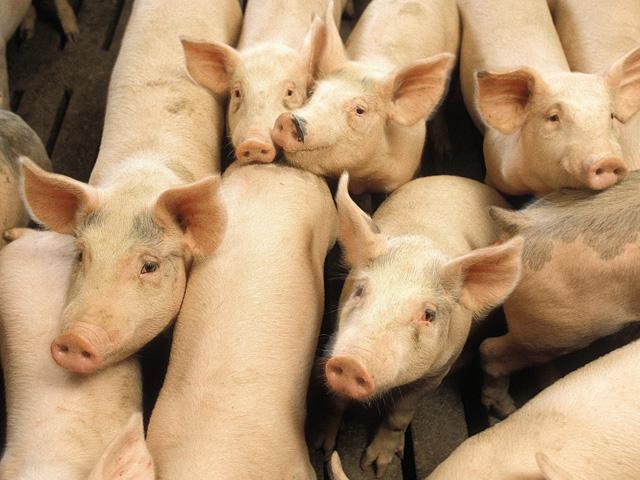USDA Suspends Pork Products Movement
African Swine Fever Protection Zone Requires Temporary Restriction; PR, Virgin Islands Prohibited
LINCOLN, Neb. (DTN) -- USDA suspended the movement of all live swine, swine germplasm, swine products and swine byproducts from Puerto Rico and the U.S. Virgin Islands to the mainland U.S. in an effort to prevent the spread of African swine fever.
In a news release at the end of last week, USDA said it issued the federal order as part of establishing an animal disease protection zone in Puerto Rico and the Virgin Islands. The order was given to allow USDA to establish "sufficient mitigations" against ASF.
"APHIS is taking this action out of an abundance of caution to further safeguard the U.S. swine herd and protect the interests and livelihoods of U.S. pork producers," the agency said in a statement.
"ASF has not been detected in Puerto Rico or the U.S. Virgin Islands, and we continue to coordinate with both territories to increase education and outreach and improve biosecurity."
The Animal and Plant Health Inspection Service on July 28 confirmed ASF in the Dominican Republic. On Aug. 26, APHIS announced plans to establish a foreign animal disease protection zone around Puerto Rico and the U.S. Virgin Islands.
APHIS said once the protection zone is established, the agency would be able to restrict movement of live swine and products out of the protection zone, conduct surveillance within the zone, conduct a public-education campaign on biosecurity on farms, prohibit the movement of live swine and products outside of the region and to contact report clinical cases to authorities.
At an Ag Outlook event Monday in Kansas City, Missouri, an executive for Zoetis, the world's largest animal-health company, said ASF will remain a global challenge for the swine industry. There remains no vaccine to immunize the hog herd, and any potential vaccine could be three years out.
"So, African swine fever has been in Europe for some time, and there is no effective solution today so it's obviously not a quick fix," said Tim Bettington, executive vice president of U.S. operations for Zoetis. Betting added, "It could take up to three more years to develop an active solution. Some of it will depend on whether there be emergency use vaccines available or not."
P[L1] D[0x0] M[300x250] OOP[F] ADUNIT[] T[]
Looking at the U.S. preparation plan for ASF, Bettington said time has been a friend for the U.S. to help prepare because so far, most countries have been caught by surprise. He noted Germany initially did not have a good response for ASF, and that led to a ripple effect among Germany's neighbors.
"Hopefully it does not hit the ground here, but if it does, I think we will be the best prepared for a response so far," Bettington said.
A USDA official said earlier in August the U.S. was trying to accelerate efforts to eradicate feral hogs in Puerto Rico and to expand testing efforts in Haiti and the Dominican Republic.
ASF has not been detected in Puerto Rico or the U.S. Virgin Islands.
The World Organization for Animal Health provides for the establishment of a protection zone within an area free of disease, USDA said, as a temporary measure in response to an increased risk from a neighboring country or zone of different animal health status.
USDA said it was "actively working" with officials in the Dominican Republic by offering technical advice and assistance on surveillance, quarantine, depopulation and disposal methods. It is also providing testing support, including bolstering in-country testing capacity.
ASF has no human health implications, but the disease spreads rapidly through a swine herd and is deadly to swine.
ASF led to rapid slaughter of millions of hogs in China in late 2018 and early 2019, cutting the world's largest swine herd down as much as 40% and leading China to basically rebuild its entire swine industry in the process. The ripple effect led to a high volume of global pork exports to China, including from the U.S., in response.
Chinese officials said in 2020 the country had gotten a handle on the disease, but USDA in April 2020 cited that underreporting of cases was now a problem in China as producers in the country were reluctant to report any new outbreaks because of fears of economic losses.
Germany was originally hit with ASF in its feral hog population last year, which effectively cut off exports from the country. German officials reported ASF had been found in at least three farms, affecting domestic pigs.
U.S. and Canadian officials have since been concerned about the potential risks for ASF landing in North America and the potential devastation it would cause. The risks are high, considering the U.S. exported a record $7.7 billion in pork in 2020 and is largely keeping close pace with that sale volume so far in 2021. The risk of a single case could effectively close U.S. export markets.
DTN Ag Policy Editor Chris Clayton contributed to this story.
Read more on DTN:
"African Swine Fever Protection Zone Set," https://www.dtnpf.com/…
"US Steps Up African Swine Fever Efforts," https://www.dtnpf.com/…
Todd Neeley can be reached at todd.neeley@dtn.com
Follow him on Twitter @DTNeeley
(c) Copyright 2021 DTN, LLC. All rights reserved.




